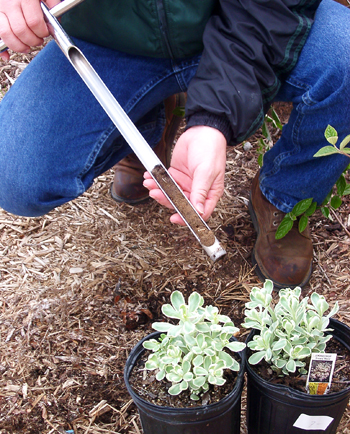Soils for gardeners: Unlocking the secrets to the living component of a healthy soil
A close look at soil biology helps gardeners understand how routine garden practices may tip the balance of a healthy soil.

Understanding soil biology is quickly becoming the “next frontier” for science exploration. Michigan State University professor of nematology George Bird reminds us that “Like the oxygen we breathe, no life can exist without soil.” Similarly, soil cannot function without life.
While soil scientists have long understood the physical and chemical properties of the ground we garden in, new research is unlocking secrets of the “living component” of soils that make them able to regenerate and function as a living ecosystem. So, what does this mean? Do we need a bunch of earthworms sliding around to make our soils healthy?
According to Bird, a large percentage of the living component is microscopic, not visible to the naked eye. Like magic, organisms such as bacteria, fungi, nematodes, flagellates and actinomycetes work in harmony with one another to release, or mineralize, nutrients and make them available to plant roots. Often these very organisms become the “gatekeeper” of essential elements to enter plant roots. What Bird describes as “gardener’s friends,” these diminutive creatures work in tandem with plant roots and each other, allowing the soil to respond to management practices in a predictable manner and preventing soil degradation.
A closer look
Naturally occurring fungi known as mycorrhiza, or root fungi, thrive in the soil just outside the plant’s root hairs or “rhizosphere,” the area of soil directly impacted by the root. Water and nutrients must travel through the mycorrhiza to enter the plant’s vascular system. Acting as a “gatekeeper”, the mycorrhiza also protects roots from some disease-causing organisms. Likewise, beneficial bacterial also lend a hand by protecting plant roots from harmful invaders. A symbiotic relationship allows both organisms to benefit from living in the shadow of the root as it “leaks” a sugar exudate (food) into their watery world.
Bird groups a smart gardeners’ friends into three categories:
- Shredders: earthworms and arthropods
- Decomposers: bacteria, fungi and actinomycetes
- Mineralizers: flagellates, ciliates and nematodes
Playing roles in the transformation of dead or decomposing plant matter into usable nutrients, these creatures may have big names, but they are larger than life when it comes to helping a garden be sustainable.
The big screen backlot
The very gardening practices you implement will encourage this “life below ground” or discourage it. Excessive tillage, over-fertilization, over-watering, over-use of pesticides and compaction are factors that destroy the dynamic equilibrium that one hopes to achieve in a sustainable or “smart garden.”
We have long understood that the rototiller may not be a gardener’s best friend. The action of excessive tillage breaks chemical bonds that soil needs to help it “clump,” providing pores for air, water and roots to penetrate. At the same time, adding abundant oxygen to the soil causes organic matter to decompose rapidly which may lead to an imbalance in the living component of your soil.

Organic mulches benefit soils by allowing the gardener to reduce or stop tilling. Photo credit: Rebecca Finneran, MSU Extension
Farmers have been exploring no-till technology for many years to reclaim the soil’s natural, living component. While this may take many years, Michigan State University Extension believes a gardener can capitalize on the same techniques to encourage life below ground to bloom as it does above. In addition to this, research is proving out that organic mulches also will benefit the good guys by keeping soils more insulated, evenly moist during dry periods and providing nutrients that they thrive on.
For more information on a wide variety of Smart Gardening topics, visit the Gardening in Michigan website at www.migarden.msu.edu or contact MSU’s toll-free garden hotline at 1-888-678-3464.



 Print
Print Email
Email


